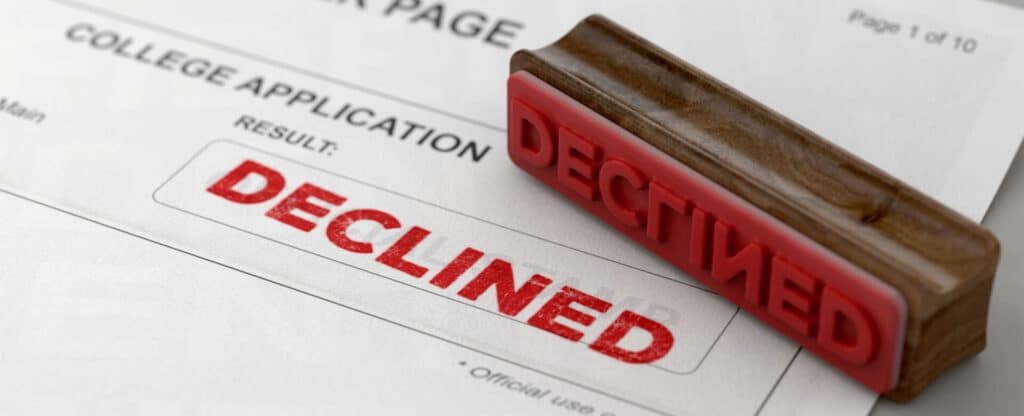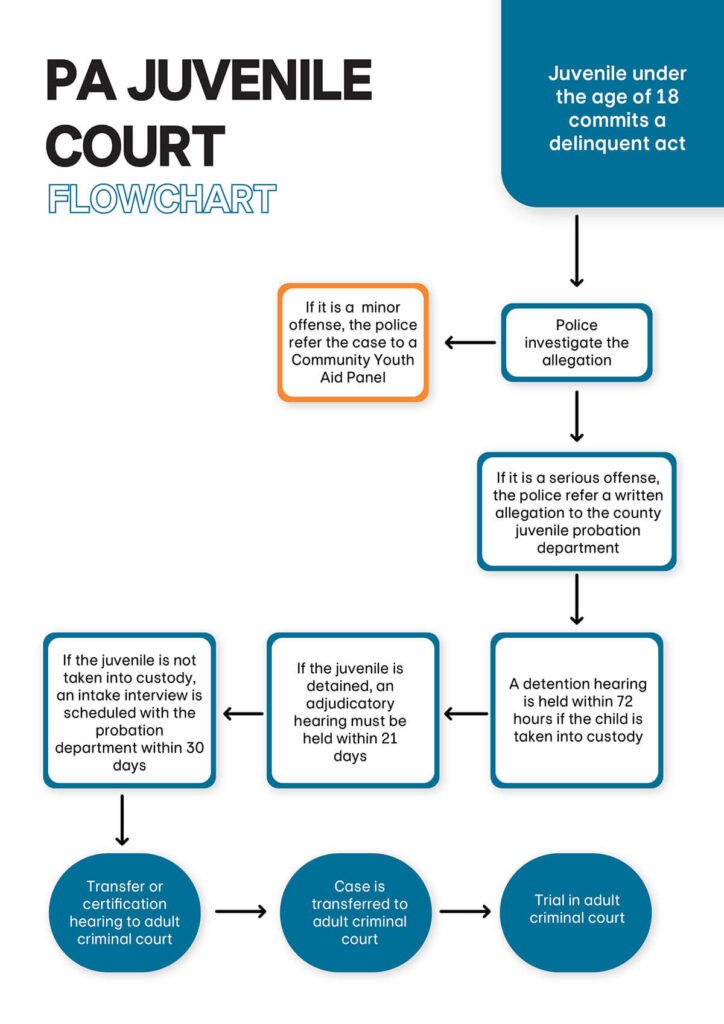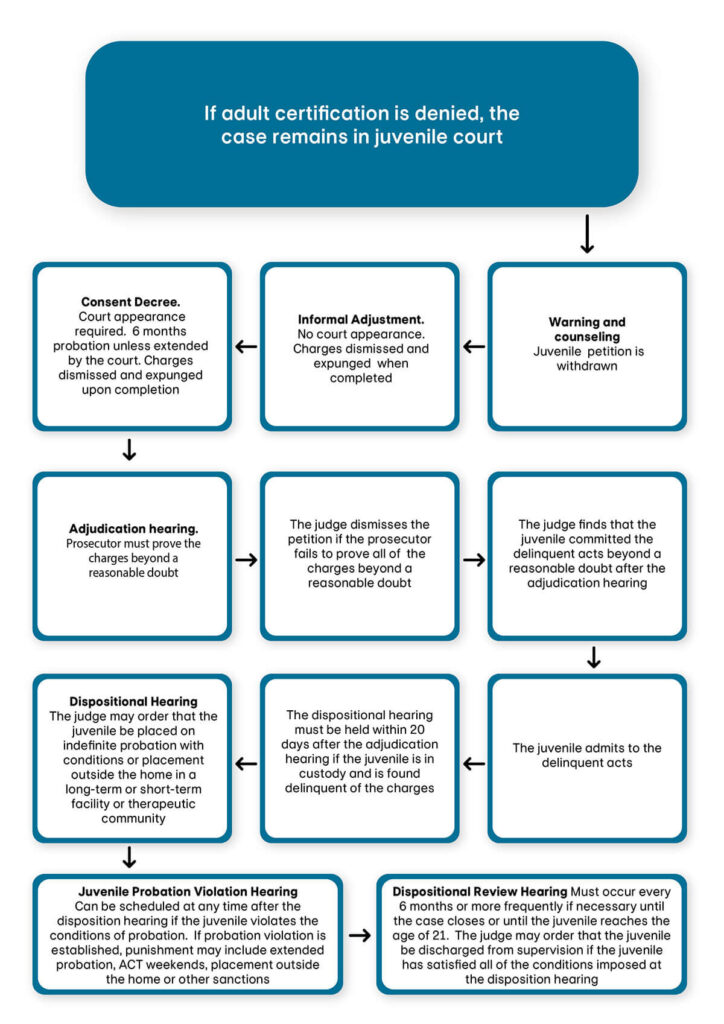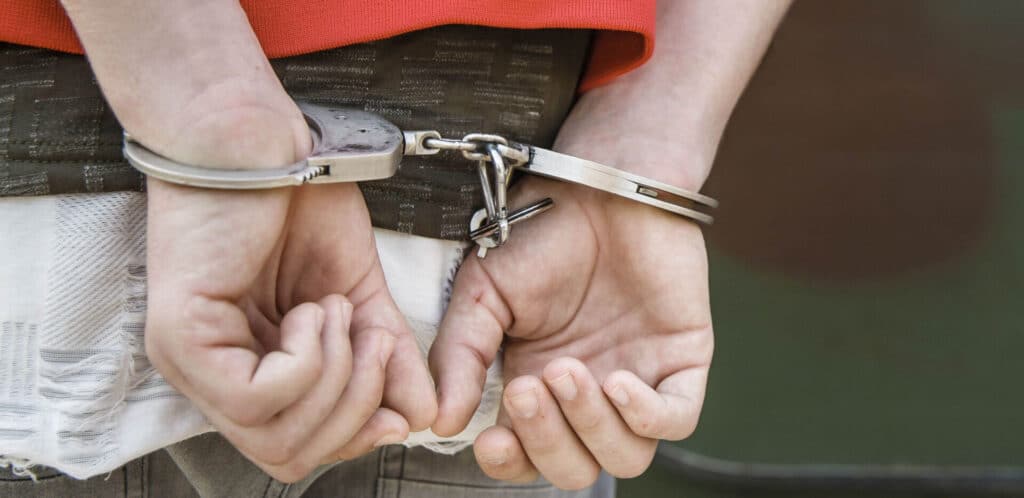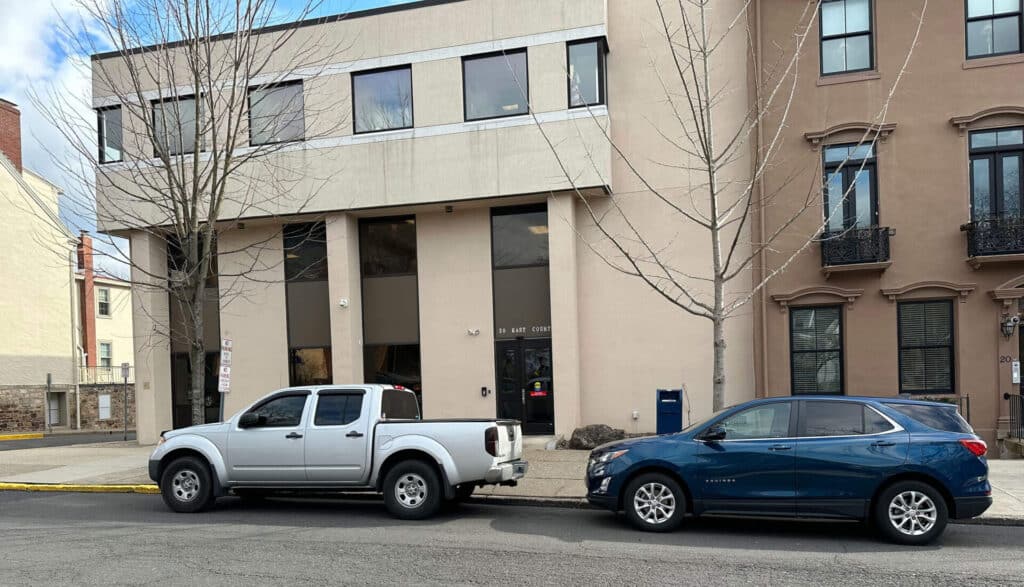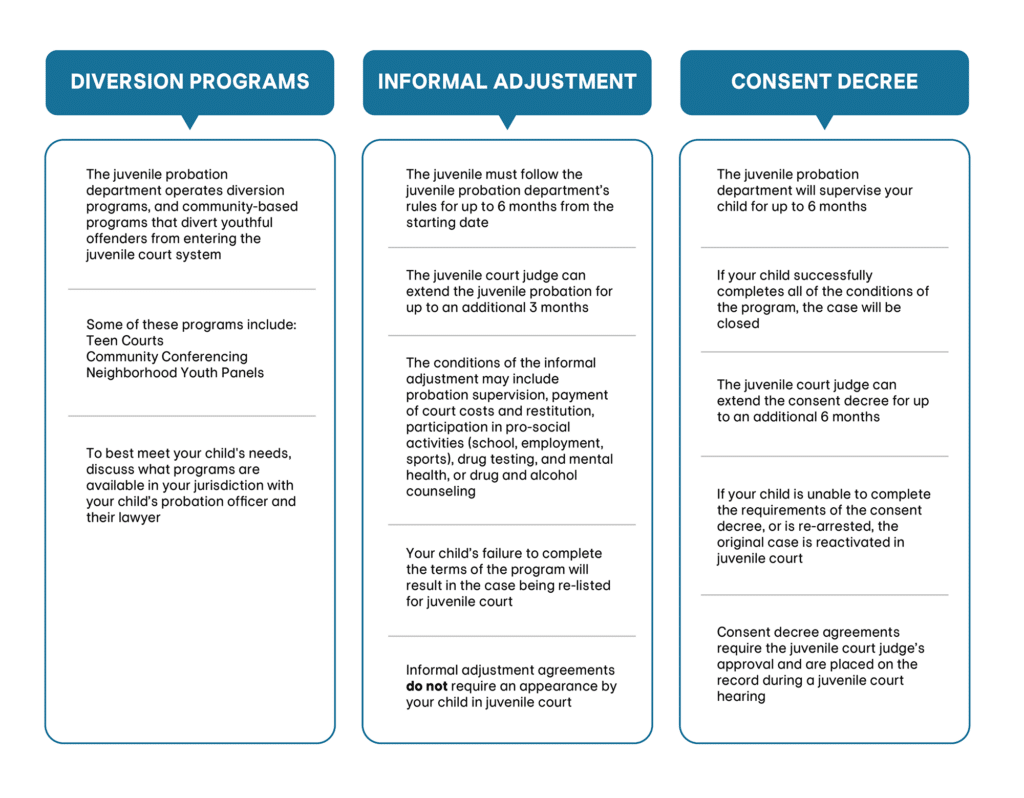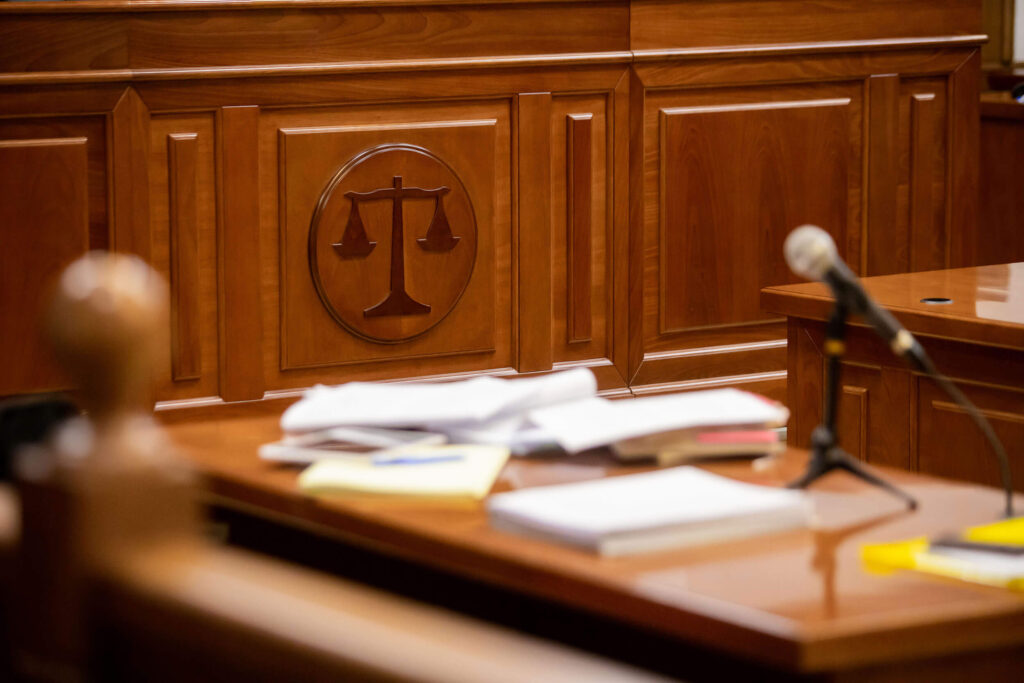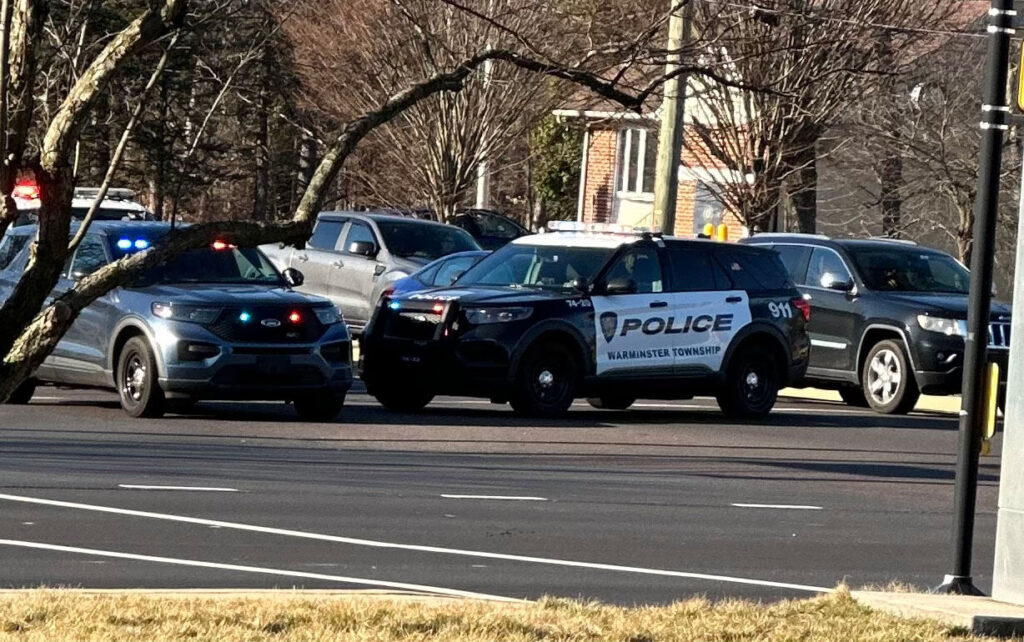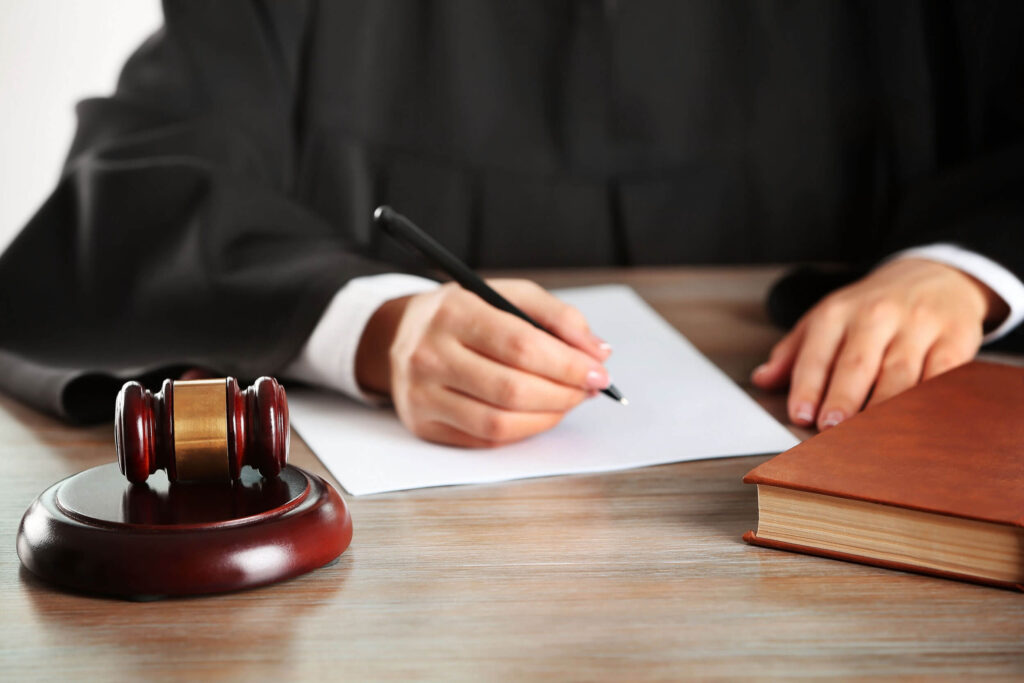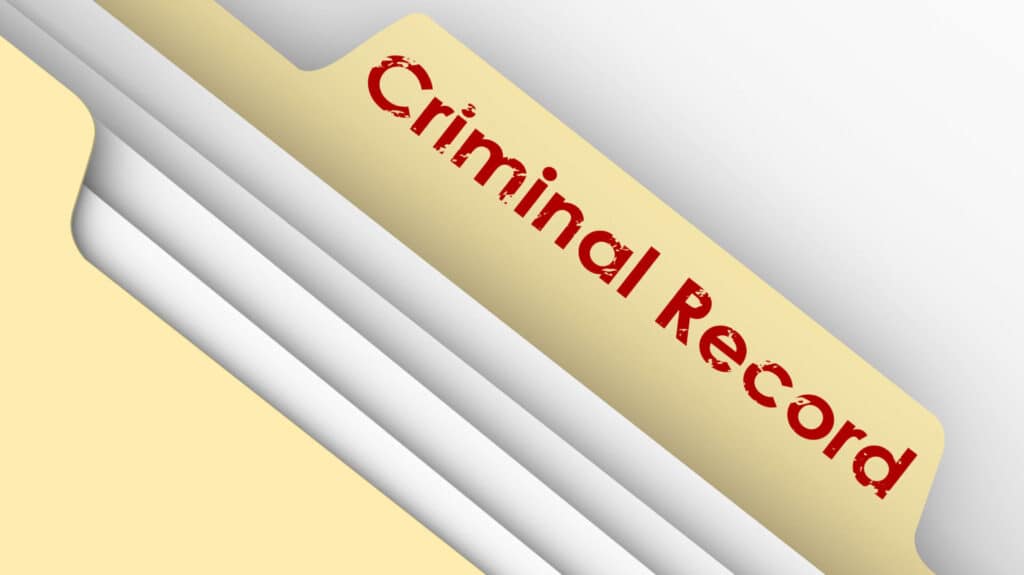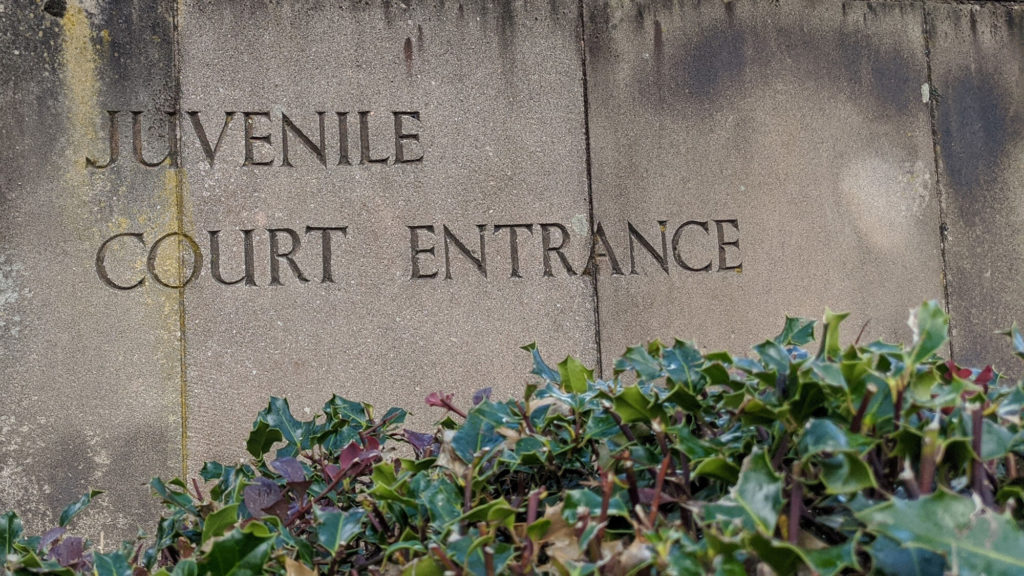
Having a child or loved one facing charges in the Pennsylvania juvenile Court System is one of the most stressful situations a family can go through. Understandably, you may worry about the effect juvenile charges will have on their future. Hiring an experienced PA juvenile criminal defense lawyer is crucial with so much at stake.
Unfortunately, a juvenile record can permanently damage a teenager’s lifetime financial, educational, personal, and professional opportunities.
As a juvenile criminal lawyer, I will guide you and your child through the complex juvenile court process while working to achieve a result that protects your child’s future. Finally, a juvenile defence attorney must understand the Pennsylvania Juvenile Act and all Pennsylvania Juvenile Court Procedures.
Do You Need a Lawyer for Juvenile Court?
Yes. One of the most frequent questions I receive from clients is: Do I need a lawyer for juvenile court? Unfortunately, the consequences of juvenile court proceedings can have far-reaching adverse effects on your child’s future.
Unfortunately, the juvenile laws in PA can be confusing for people without a legal background. As a trusted juvenile criminal defense attorney, I will protect your child’s rights and ensure they get through court without adversely impacting their future.
Above all, I have a proven record of successfully defending individuals in the juvenile courts in Bucks County, Montgomery County, and the neighboring Pennsylvania Counties.
Juvenile Attorney
Searching for juvenile lawyers near me? Have the police charged your child with a juvenile misdemeanor. Contact me at (215) 752-5282 for a free initial consultation, or fill out the contact form for an immediate response. Appointments are available during business hours, after business hours, and on weekends.
What is the Juvenile Court System in Pennsylvania?
In Pennsylvania, the juvenile justice system is governed by the Pennsylvania Juvenile Act and the Pennsylvania Rules of Juvenile Court Procedure. The juvenile court system addresses offenses committed by children and teenagers between the ages of 10 and 18.
However, supervision of the juvenile can continue until they reach age 21. Furthermore, under specified circumstances, the district attorney may petition to transfer a juvenile’s case to the adult court system. The child will be exposed to more severe penalties if a judge grants the certification petition.
Are you a parent with questions about the Pennsylvania Juvenile Justice System? Read my blog post entitled: A parent’s guide to PA juvenile court.
What is the Main Purpose of Juvenile Court?
Unlike the adult criminal court system, the Pennsylvania juvenile courts focus primarily on rehabilitating the juvenile offender. For this reason, juvenile court officers can provide a variety of valuable services to youthful offenders, including:
- Specialized mental health treatment
- Drug and alcohol counseling
- After-school programs
- Youthful Offender Wilderness Program (Bucks County Juvenile Probation)
- Life skills training
- Conflict resolution counseling
Why is it Important for your Child to Avoid a Juvenile Record?
Unfortunately, many serious ramifications can result if a juvenile court judge determines that your child committed a delinquent act. Also, depending on the circumstances of the case, these negative consequences may include:
- Difficulty getting employed in certain professions
- Placement in a law enforcement DNA database
- Loss of driving privileges
- Mandatory disclosure of a juvenile record on college applications
In most cases, a skilled juvenile court lawyer can help your child avoid these results.
How Does a Pennsylvania Juvenile Case Begin?
A Pennsylvania juvenile case is typically initiated under one of the following circumstances:
- The police arrest a child for a delinquent act or:
- The Juvenile Probation Department receives a referral from the police
After an arrest or referral, the juvenile probation officer or prosecutor will file a Petition for Delinquency with the juvenile court. Furthermore, the juvenile petition will list the date and time of the alleged offense and a certification by the probation officer or district attorney that the juvenile needs treatment, supervision, or rehabilitation.
Searching for a juvenile court attorney near me. You should immediately contact a juvenile criminal attorney if your child is arrested or if they receive a summons to appear in juvenile court.
What is a Detention Hearing in Juvenile Court?
In Pennsylvania, the juvenile detention hearing is the first court hearing in a juvenile case. It is crucial for a parent or guardian to understand what happens at a detention hearing in juvenile court.
First, a detention hearing only occurs when the child has been in custody. Finally, under the PA Juvenile Act, the detention hearing must occur within 72 hours after the juvenile is detained.
What Does the Judge Decide at the Detention Hearing?
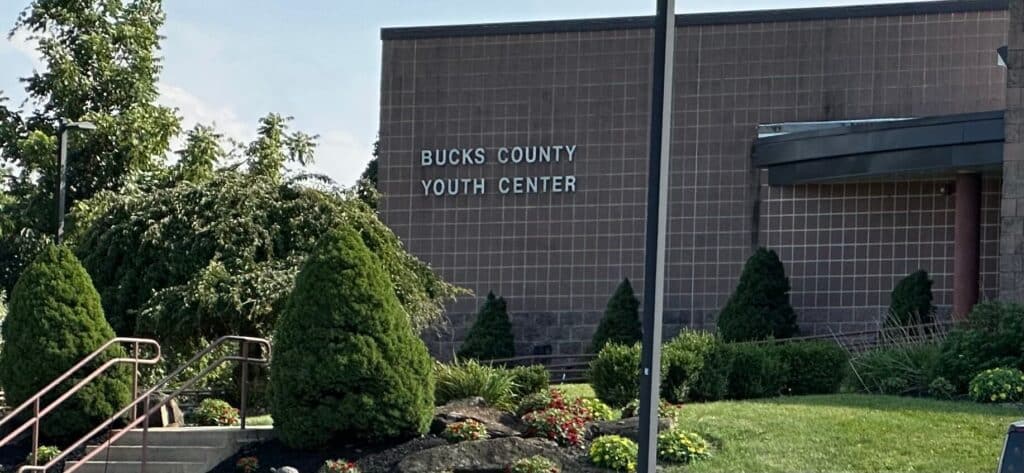
Bucks County Juvenile Detention Center, Doylestown, PA
At the detention hearing, the juvenile court judge decides if the child is released from custody. If released, then the judge may place conditions on the juvenile. Notably, a judge will consider the following factors in deciding whether a child will be removed from a juvenile detention facility:
- How serious are the charges filed against the juvenile?
- Is the juvenile a danger to the community?
- Is home detention with electronic monitoring an option for release?
- Are family members willing to supervise the child if released?
What is the Role of the Juvenile Criminal Defense Attorney at the Detention Hearing?
The detention of a child in a juvenile center for even a few days can result in severe stress and other psychological trauma. Furthermore, prolonged placement in a juvenile facility can also interfere with a child’s ability to continue successfully with schooling, employment, and other critical outside activities.
As a result, it is essential to have an experienced and assertive juvenile criminal attorney present to advocate for your child at the detention hearing. In most cases, your child must return home, even if the judge imposes reasonable conditions for your child’s release.
I will ensure that the juvenile court judge is aware of your child’s good character, community support, alternatives to detention, and other crucial mitigating evidence.
What is the Intake Procedure in Juvenile Court?
In most Pennsylvania Counties, the intake procedure begins after the police arrest a juvenile or after the police file a formal allegation against the child.
During intake, a juvenile probation officer will conduct an intake interview to gather background information about the minor and the circumstances of the case. In most situations, a lawyer should be present during the intake interview if the child is discussing the charges.
After the intake interview, the probation officer will decide whether to recommend that the juvenile’s case be placed into a first-offender diversion program. If not, the juvenile’s case will proceed to an adjudicatory hearing.
-
Entrance to Bucks County Juvenile Probation Department in Doylestown, PA
Juvenile Probation Department Address
30 E Court Street
3rd Floor
Doylestown, PA 18901
View on Google Maps

Entrance to Bucks County Juvenile Probation intake office
Juvenile Probation Intake Office Address
705 W. Market Street
Perkasie, PA, 18944
View on Google Maps
What Types of First-Offender Programs are Available for Juveniles?
Many juvenile cases will qualify for admission into a first-offender program. When completed, these programs will allow a child to have the charges dismissed and expunged from their record. I can explain the eligibility requirements for juvenile diversion in Pennsylvania.
Informal Adjustment Juvenile Court
The informal adjustment juvenile diversion program is offered to juveniles charged with lower-level offenses. For example, most juvenile probation departments will propose an informal adjustment diversion in cases involving possession of marijuana, possession of drug paraphernalia, and retail theft.
Finally, the district attorney must approve a juvenile’s placement in the informal adjustment diversionary program.
What are the Conditions of a Juvenile Informal Adjustment?
The conditions of a juvenile informal adjustment diversion may vary depending on the facts of the case. The most common requirements include the following:
- 6 months of probation
- Completion of community service
- Payment of court costs
- Nighttime curfew
Consent Decree Juvenile Court
Persons who cannot have their cases resolved through the informal adjustment program may be eligible for diversion of their charges through a juvenile consent decree.
Unlike an informal adjustment, a juvenile approved for a consent decree will be required to appear in court. Also, the prosecutor and the juvenile court judge must approve a juvenile’s placement on a consent decree.
What are the Conditions of a Juvenile Consent Decree?
A child approved for placement on a juvenile consent decree will have their case suspended for 6 months. Also, the juvenile will be placed under the supervision of the probation department for up to 6 months. Unfortunately, the juvenile court may extend the probationary period for the consent decree program for an additional 6 months.
Furthermore, a juvenile accepted into the consent decree program will often be required to complete community service and abide by curfew restrictions.
The child will also be required to maintain acceptable school grades, participate in after-school programs and comply with any mandated substance abuse or psychological treatment programs.
Benefits of a Juvenile Consent Decree
A juvenile who successfully completes the requirements of the consent decree program will have the charges related to their petition for delinquency dismissed. In addition, the prosecutor will not take any further action. Therefore, at this point, the juvenile is eligible to petition the court to expunge the case records.
Receiving approval for a consent decree diversion in a juvenile case can be a complicated process, even for juveniles who have had no prior contact with the court system. I can help your child navigate the juvenile court system to ensure they are in the best position to receive approval for placement on a consent decree.
Terroristic Threats PA Juvenile
Terroristic threats are among the most commonly filed charges in the juvenile courts in Pennsylvania. Some juvenile threats cases involve a threat to kill or injure another child or adult.
However, an increasing number of juvenile terroristic threats charges involve threats directed at individual students or threats aimed at grade schools, middle schools, or high school buildings.
Also, most schools have a zero-tolerance policy if a student threatens the school, a student, or a teacher. As a result, the police can charge a student with terroristic threats even if the threat was made as a joke or made without the intent of carrying it out.
Common examples include the following:
- A threat to “shoot up the school” with a handgun or a high-capacity rifle
- A threat to detonate a bomb at the school
- A specific threat of violence directed toward a teacher, students, and other school employees
- An explicit threat to kill or seriously injure another student or students
Juvenile Terroristic Threats
Most schools have a zero-tolerance policy for any threats of violence in a school setting. So, for example, even joking about committing violence at a school can result in your child being charged with terroristic threats.
A juvenile terroristic threats charge is a serious matter that can have lifelong consequences for your child. Fortunately, I can determine whether the case can be dismissed in juvenile court or if it is a better strategy for your child to enter a first-offender diversion program to ensure that they avoid a juvenile record.
Review the PA terroristic threats defense lawyer page to get more information on how to defend against a terroristic threats juvenile offense.
Juvenile Drug Possession Lawyer
A large percentage of cases filed by the police in juvenile court involve juvenile drug possession. The most common drug involved in juvenile possession cases is marijuana. Still, other controlled substances include heroin, Xanax, Vicodin, Oxycontin, and Adderall.
Also, many juveniles abuse the over-the-counter medication dextromethorphan (DXM). DXM is called dex, robo, skittles, triple c, and tussin. As an accomplished juvenile drug lawyer, I have extensive experience analyzing every legal aspect of a drug possession case.
Those issues include examining the legality of the police officer’s search and seizure of your child and the search and seizure of any drugs and drug paraphernalia. In addition, I would assess whether the prosecutor has sufficient evidence to prove their charges.
Juvenile Marijuana Vaping Attorney
Most drug-related juvenile drug cases involve marijuana vaping on school grounds. For juveniles, the majority of marijuana vaping incidents occur in middle school or high school bathrooms. The marijuana is consumed through a vape pen containing crushed cannabis or THC oil.
I can help your child avoid a drug-related criminal record if the police charge them with possession of a controlled substance and drug paraphernalia due to a marijuana vaping offense.
Pennsylvania Juvenile Sexting Defense Lawyer
I have extensive experience with defending juveniles charged with sexting offenses. Please refer to the juvenile sexting defense lawyer page for information about sexting crimes and defenses.
Adjudication Hearing Juvenile Court
Juvenile cases that do not resolve through an informal adjustment, consent decree, or the child’s admission to the charges will proceed to an adjudicatory hearing.
The juvenile court must schedule an adjudicatory hearing within 10 days of filing the delinquency petition unless the judge grants a continuance for an appropriate legal reason.
A juvenile adjudicatory hearing is overseen by a juvenile court judge who determines, after the presentation of evidence, whether the juvenile has committed a delinquent act. A delinquent act is an act that would be considered a crime if it were committed by an adult.
What is the Standard of Proof in Juvenile Court?
The prosecutor must prove the elements of each alleged crime beyond a reasonable doubt. The Pennsylvania appellate courts have defined reasonable doubt as a doubt that would cause a reasonable person to hesitate in acting on an important matter in their own affairs.
Persons found to have committed a delinquent act are not found guilty of a crime but are instead classified as having committed a delinquent act. After a finding of delinquency, a juvenile court judge must make a separate determination as to whether the juvenile requires treatment, supervision, or rehabilitation.
The Importance of a Skilled Juvenile Defense Attorney
Your child must be represented by an experienced Pennsylvania juvenile crime lawyer for the adjudication stage of the case. Having a skilled juvenile criminal defense attorney at your child’s side is especially important in cases where the police have falsely accused your child of a crime.
For these reasons, an experienced defense attorney for juveniles is needed when the prosecutor pursues charges without sufficient evidence that a crime has occurred.
What is a Motion to Suppress Evidence in Juvenile Case?
A comprehensive juvenile defense will include a review of whether your child’s constitutional rights were violated at any stage in the case. When necessary, I will file a Motion to Suppress Physical Evidence, a Motion to Suppress Identification, or a Motion to Suppress Statements.
A Motion to Suppress Evidence can be filed when the police illegally search your child’s:
- Home
- Person
- Cell phone
- Vehicle
- School book bag
- Other personal possessions
If the suppression motion is successful, the juvenile court judge may exclude any evidence obtained by the police in violation of your child’s constitutional rights.
Common Defenses in Juvenile Cases
Depending on the facts of the case, other defenses may be available to your child. They include self-defense, defense of others, alibi, mistake of fact, or insufficient evidence of criminal conduct.
I will thoroughly investigate the facts and circumstances of the case to determine whether any of these defenses can be established in court. This is especially critical in cases where your child did not commit the offenses alleged in the juvenile petition.
Negotiating a Reduction in the Charges
In cases where a viable defense may not be available, the most beneficial result may be the resolution of the petition through a negotiated adjudication and disposition of the charges.
Furthermore, a negotiated settlement of the juvenile charges can include a reduction in the number and grading of the offenses, an agreement to release the juvenile from custody, or an agreement for a specified disposition of the case. I can help your child or loved one determine the best strategy to resolve the matter and protect their future.
Disposition Juvenile Court
A disposition hearing will be scheduled by the juvenile court if the juvenile admits to the offenses in a court hearing or if the juvenile court finds that the child is delinquent after an adjudicatory hearing.
The disposition hearing will be held within 20 days of a finding of delinquency by a juvenile court judge if the juvenile is in custody at a juvenile facility or within 60 days if the youth is out of custody.
What happens at a Disposition Hearing?
After a finding of delinquency by the court, the juvenile probation officer will prepare a background report on your child for the juvenile court judge. The information will include treatment, supervision, and rehabilitative services recommendations.
Some common recommendations for disposition by the juvenile probation department may include the following:
- Juvenile probation
- Placement outside the home in a therapeutic center
- Placement at a long-term juvenile detention facility
- Community Service
- Participation in after-school rehabilitation programs
- Participation in drug and alcohol treatment in the community
- Full or part-time employment
Why is it Crucial to get an Independent Disposition Recommendation?
Having any dispositional recommendations reviewed by an experienced juvenile defense attorney is vital. Also, the juvenile court judge is not required to accept the probation department’s dispositional proposal. More practical, less restrictive alternatives can often be recommended to the court to better address your child’s needs
How a Juvenile Court Attorney Can Ensure that Your Child is Treated Fairly
In some cases, it may be in your child’s best interests to consult with a forensic psychologist to review your child’s family and educational background and assess any existing mental health or substance abuse issues.
In addition, these experts can often identify local programs and services that serve as alternatives to the probation department’s disposition recommendation.
The forensic psychological expert can prepare a dispositional report for your child. If necessary, the expert will testify and rebut the dispositional recommendation of the juvenile probation officer.
Are you searching for a juvenile lawyer near me? I am familiar with state and local treatment programs for juveniles facing mental health, substance abuse, and other childhood challenges. Therefore, I can help find the least restrictive and most effective programs for your child.
How Long Does Juvenile Probation Last?
Juvenile probation usually lasts six months for a consent decree and other minor offenses. However, for more serious felony offenses, juvenile probation can last for more than one year or often more.
Also, the judge can extend probation if the juvenile violates the probation rules. Common juvenile probation violations include the following:
- The child repeatedly fails drug tests
- The police charged the juvenile with a new offense
- The juvenile fails to complete drug and alcohol treatment
- The child fails to fulfill court-ordered community service
- The juvenile does not acquire full or part-time employment
- The child is discharged from a residential placement before completing the program (referred to as failure to adjust)
Juvenile Review Hearings
The juvenile court judge must hold dispositional review hearings every six months. This requirement ensures the juvenile receives the necessary treatment and services and confirms that the objectives of the disposition are being achieved.
The juvenile court may schedule the dispositional review hearings more frequently if the circumstances warrant it. Many issues may arise after a dispositional hearing that can adversely affect a child’s ability to complete a residential placement or supervised probation successfully.
Protecting your Child’s Rights at the Review Hearing
Having a knowledgeable juvenile defense attorney on your child’s side is crucial to independently assess your child’s progress after the disposition of the case. Furthermore, your lawyer must determine whether any less restrictive alternatives to successfully completing the dispositional goals exist.
The probation department often recommends a more severe dispositional alternative to the juvenile court judge at the review hearing. Unfortunately, this may occur if the juvenile has violated the probation conditions or has been discharged from a treatment or placement facility for misconduct.
What Happens if a Juvenile Violates Probation?
The juvenile probation officer will request that your child attend a juvenile probation violation hearing. Unfortunately, the juvenile court judge will often only hear one side of the story if your child is accused of violating their probation.
A juvenile defense lawyer should thoroughly investigate the accusations. Then, when necessary, the lawyer should vigorously contest the circumstances of any probation violation, misconduct, or other adverse information presented to the juvenile court judge at the hearing.
Juvenile Expungement PA
A juvenile record can negatively affect a juvenile’s educational and employment prospects even after closing the case.
It is crucial to determine whether your child is eligible for the expungement of juvenile records in PA. If granted by the court, a juvenile expungement will result in the destruction of the following records:
- Arrest
- Detention
- Disposition
- Juvenile Probation
- Placement
When Can Juvenile Records be Expunged?
Your child’s juvenile offenses are eligible for expungement if the judge or prosecutor withdrew or dismissed the charges. Also, record expungement is available if a juvenile court judge finds the child was innocent of the offenses.
PA Juvenile Court Records
In addition, a juvenile may be eligible for expungement if 6 months have passed since the successful completion of a consent decree. Furthermore, the juvenile must not have any criminal or juvenile charges pending.
Pennsylvania law permits the expungement of certain juvenile records after 5 years have passed. Also, the 5 years is measured from the date that the child was discharged from placement or probation. In addition, the youth must establish that they have not been arrested, convicted, or adjudicated of any new offenses.
The Juvenile Expungement Process in Pennsylvania
The juvenile expungement process begins with filing the expungement petition. Furthermore, the petition must include specific information related to the juvenile petitioner and the juvenile case.
A juvenile court judge may schedule an evidentiary hearing in cases where the prosecutor objects to the expungement of the juvenile records. Therefore, hiring a juvenile lawyer to fight for the expungement of your child’s record is essential.
The Role of the Juvenile Defense Lawyer in the Expungement Process
The district attorney will object to many juvenile expungement petitions. Therefore, it is crucial to have an experienced juvenile expungement attorney present the strongest evidence and argument on behalf of your child.
In addition, I have often convinced the judge to grant the expungement request by proving the harm caused by the existence of the records. Finally, I am highly knowledgeable in Pennsylvania’s juvenile expungement law. As a result, you can rely on my experience to guide you and your child through the expungement application process.
Juvenile Lawyer
Is your child or loved one facing juvenile charges in Bucks County, Montgomery County, or the nearby Pennsylvania Counties? You want to know how to find the best juvenile lawyer near me. Therefore, you must act quickly to protect your child’s future and build the strongest possible defense against the charges.
Phone lines are open 24 hours a day at (215) 752-5282. Call today for a free initial consultation, or fill out the confidential contact form for an immediate response.

